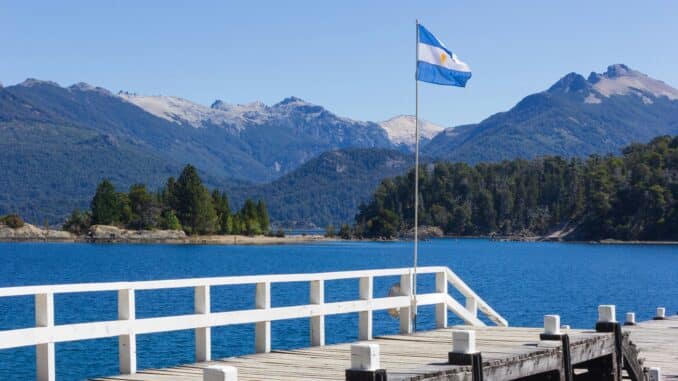
Travel Insurance for Argentina
Travel Insurance is always recommended for countries such as Argentina, but is not in any way mandatory.
Travel insurance can provide coverage for various unexpected events, such as medical emergencies, trip cancellations, lost or stolen belongings, and other unforeseen circumstances.
Even though it might not be a legal requirement, it can help protect you financially and provide peace of mind during your trip.
Travel Insurance Coverage.
Whilst insurance policies differ in terms of cover and financial limits, in general a policy will provide the following main benefits :
- Trip Cancellation or Interruption: Reimbursement for non-refundable trip expenses if your trip is canceled or cut short due to covered reasons, such as illness, injury, or other unforeseen circumstances.
- Emergency Medical Expenses: Coverage for medical treatment and related expenses if you become ill or injured during your trip. This can include hospital stays, surgery, and other medical services.
- Trip Delay: Compensation for additional expenses incurred due to a covered delay, such as accommodation, meals, and transportation.
- Lost, Stolen, or Damaged Belongings: Reimbursement for the cost of replacing or repairing personal items that are lost, stolen, or damaged during the trip.
- Baggage Delay: Coverage for essential items and expenses if your baggage is delayed for a specified period.
- Emergency Evacuation and Repatriation: Assistance and coverage for the cost of emergency medical evacuation to the nearest suitable medical facility and repatriation to your home country in case of a serious illness or injury.
- Travel Assistance Services: Access to a 24/7 assistance hotline for help with emergencies, travel arrangements, and other services.
- Cancellation Due to Work Reasons: Some policies offer coverage if you have to cancel your trip due to work-related reasons.
- Accidental Death and Dismemberment: Coverage for accidental death or specific injuries that occur during the trip.
Here is a bit more detailed information on several of the above areas :
Medical Emergency Cover
Travel medical insurance provides coverage for medical expenses and emergency evacuations while traveling internationally.
It is designed to offer protection for various medical expenses, such as hospital stays, doctor’s expenses, and emergency dental services, incurred during a trip.
This type of insurance can be beneficial if your domestic health insurance does not extend to injuries and illnesses sustained abroad.
It is important to note that travel medical insurance works on a reimbursement-based model, so it is essential to keep documentation of all medical expenses incurred during the trip.
Additionally, some policies may include benefits beyond medical coverage, such as emergency medical evacuation, accidental death or dismemberment, and repatriation of remains.
It is recommended to carefully evaluate the coverage levels, deductibles, and limitations when selecting a travel medical plan to ensure it meets your specific needs
Flight Cancellation Cover
Travel insurance can provide coverage for cancelled flights under certain circumstances. Comprehensive travel insurance plans typically cover delayed and cancelled flights through “trip delay” coverage
- Covered Reasons:
- Flight cancellation coverage typically applies to specific reasons outlined in the policy. Common covered reasons may include illness or injury, death of a family member, natural disasters, or other unforeseen events. Ensure you understand the list of covered reasons.
- Medical Conditions:
- Some policies may cover you in the eve3nt of a medical emergency for you or someone who is travelling with you.
- Documentation:
- In the event of a flight cancellation, you may be required to provide documentation, such as a medical certificate or an official statement explaining the reason for cancellation. Be sure to understand the documentation requirements outlined in the policy.
- Reimbursement Limits:
- Travel insurance policies often have limits on the amount they will reimburse for flight cancellations. This limit may be a fixed amount or a percentage of your total trip cost. Verify the reimbursement limits in your policy.
- Timing of Purchase:
- Some policies have specific timeframes for when you need to purchase the insurance in relation to booking your trip. Purchasing insurance promptly after booking your trip can be important to ensure coverage for unexpected events.
- Cancel for Any Reason (CFAR) Coverage:
- Some policies offer a “Cancel for Any Reason” (CFAR) option, providing more flexibility. However, this coverage may come with additional costs and specific conditions.
- Exclusions:
- Policies often have exclusions, so it’s crucial to be aware of what is not covered. For example, cancellations due to certain pre-existing conditions, elective medical procedures, or specific events may be excluded.
- Contact Information and Assistance:
- Make sure you have the contact information for the insurance provider and understand the procedures for making a claim. Some policies offer 24/7 assistance services.
Types of Insurance Policy –
The two main types of policy are :
Single Trip Travel Insurance
Single trip travel insurance provides coverage for a specific journey and is ideal for those who are taking only one trip. The coverage typically begins when the policy is purchased and ends when the traveller returns home.
It can include benefits such as trip cancellation/interruption coverage, medical expense coverage, and rental car coverage. Single-trip plans are usually cheaper than annual plans and are customizable for a particular trip, including different countries. They are suitable for individuals taking a single trip, even if it’s for an extended period.
Annual Travel Insurance
Annual travel insurance is a cost-effective option for travellers who take multiple trips throughout the year.
It provides coverage for a 12-month period and is recommended for business or leisure travellers taking multiple short trips, frequent international travellers, and those who don’t need high trip cancellation coverage.
This type of insurance is not recommended for travellers taking only one or two trips, those taking extended trips lasting longer than 90 days, or those with specific trip cancellation concerns.
Annual travel insurance plans typically cover trips up to 30 days, with some more lenient policies allowing up to a 90-day trip length. They are designed to offer long-term medical benefits for frequent travellers and are ideal for those who need medical coverage while abroad.
However, they may not be suitable for travellers with specific cancellation needs, those taking a cruise, participating in adventure sports, or traveling with a large group.
Other types of travel insurance cover are available, either as a a stand alone policy, or as an add-on to an existing policy
- backpacker or long stay insurance
- children and baby insurance
- specialist holiday insurance
- sports and activities insurance
- over 60’s/ 70’s/80’s insurance
Pre-Existing Medical Conditions
Traveling with a pre-existing medical condition can be a bit daunting, but it’s important to remember that some type of travel insurance is still normally available. While some standard travel insurance policies may exclude coverage for pre-existing conditions, there are often specialized policies specifically designed to provide cover for people with specialist medical needs.
Key Considerations for Travel Insurance with Pre-existing Conditions:
-
Full Disclosure: It’s crucial to declare all your pre-existing medical conditions to the insurance provider, even if they seem minor or have been under control. Non-disclosure could lead to policy voiding if you need to make a claim related to your condition.
-
Policy Options: Not all travel insurance providers are the same when it comes to covering pre-existing conditions. Some offer limited or no coverage, while others provide comprehensive coverage with potential exclusions or higher premiums. It’s essential to compare policies carefully and choose one that aligns with your specific needs and budget.
-
Premium Considerations: Depending on the nature and severity of your pre-existing conditions, you may be required to pay an additional premium for insurance coverage. The premium amount will vary depending on the provider and the complexity of your medical history.
-
Eligibility Guidelines: Each insurance provider has its own set of eligibility guidelines for pre-existing conditions. Some may require a specific duration of stability or medication control, while others may have restrictions on certain conditions or treatments.
-
Documentation and Authorizations: In some cases, your insurer may request medical documentation or authorization from your doctor before approving coverage for pre-existing conditions. Be prepared to provide these documents if requested.
-
Plan Limitations: Even with specialized travel insurance for pre-existing conditions, there may be certain limitations or exclusions. For instance, some policies may not cover certain treatments or medications, or they may limit the maximum amount of coverage for pre-existing condition-related expenses.
-
Emergency Consultations: Most travel insurance policies include a 24/7 medical emergency helpline that can connect you to a doctor or medical service provider while you’re abroad. This can be invaluable in case of a sudden medical emergency related to your pre-existing condition.
-
Pre-Travel Planning: Before you depart, it’s advisable to research healthcare facilities and access to necessary medications in your destination country. Having this knowledge can help you make informed decisions and prepare for potential medical needs while traveling.
In summary, while travel insurance for pre-existing medical conditions may require more effort and careful selection, it’s worth the peace of mind knowing that you have financial protection in case of an unexpected medical situation. By fully disclosing your conditions, comparing policies, and understanding potential limitations, you can choose the right coverage to ensure a safe and enjoyable trip.
Visa Requirements and Travel Insurance
Visa requirements can change quite regularly, so it’s essential to check the latest information from official sources or the nearest Argentine consulate or embassy. Your travel insurance policy is unlikely to cover you if you do not have the proper visa to enter Argentina
The following information is a general guide, and specific details may vary based on your nationality and the purpose and duration of your visit.
- No Visa Required:
- Citizens of many countries, including the United States, Canada, European Union member states, UK, Australia, and New Zealand, do not need a visa for short visits (tourism or business) to Argentina for stays up to a certain number of days. These stays are usually limited to 90 days within a 180-day period.
- Visa on Arrival:
- Some nationalities that do not require a visa for short visits may still need to pay a reciprocity fee upon arrival. This fee is subject to change and depends on your nationality.
- Electronic Travel Authorization (AVE):
- Argentina has implemented an Electronic Travel Authorization (AVE) system for certain nationalities. Travelers from countries that are part of this system need to apply online for an AVE before traveling to Argentina.
- Work and Residence Visas:
- If you plan to work or study in Argentina or stay for an extended period, you will likely need a work or residence visa. The application process may involve providing various documents, including a letter of employment or acceptance from an educational institution.
- Business Visas:
- For business-related visits, you may need to apply for a business visa. This visa is usually required if you plan to attend meetings, conferences, or conduct business activities.
- Tourist Visas:
- Tourist visas are generally required for longer stays or for citizens of countries without visa-free access. The application process may require proof of accommodation, return flight tickets, and proof of financial means.
- Diplomatic and Official Visas:
- Diplomats and officials traveling on official business may need to obtain a diplomatic or official visa.
LGBT Travellers
Argentina is generally considered one of the more LGBT-friendly countries in South America. The country has made significant strides in promoting LGBT rights and inclusivity. Here are some key points:
- Legal Recognition:
- Argentina was the first country in Latin America to legalize same-sex marriage in 2010. Additionally, it recognizes and allows for gender identity changes on official documents.
- Anti-Discrimination Laws:
- Argentina has national laws that prohibit discrimination based on sexual orientation and gender identity. These laws cover various aspects of public life, including employment and services.
- Public Opinion:
- The general attitude towards the LGBT community in Argentina is relatively open and accepting, especially in larger cities. Public support for LGBT rights has grown over the years.
- LGBT Events:
- Argentina hosts various LGBT events and pride celebrations throughout the country. Buenos Aires, the capital, is known for its vibrant LGBT community and hosts one of the largest Pride parades in South America.
- Visibility and Representation:
- There is a growing visibility of the LGBT community in Argentina, with organizations and activists working towards greater representation and inclusivity.
- Tourism and LGBT Travel:
- Argentina actively promotes itself as an LGBT-friendly tourist destination. Many hotels, businesses, and tourist services in major cities are accustomed to serving LGBT travellers.
- Safe Spaces:
- While there may be variations in acceptance across different regions, major cities like Buenos Aires generally have established LGBT-friendly neighbourhoods and venues, providing safe spaces for the community.
How Safe is Argentina
Travel insurance policies will normally cover personal effects, money, documents etc, but will expect you to take normal safety precautions in any part of Argentina you visit.
Argentina is generally a safe country to visit, but it’s important to be aware of your surroundings and take precautions against petty crime, such as robbery and bag snatching. These crimes are most common in tourist areas, especially in Buenos Aires, Mendoza, and Rosario.
Here are some tips to stay safe in Argentina:
- Avoid carrying large amounts of cash or valuables. Only bring the money you need for the day and keep it in a money belt or hidden pocket.
- Be cautious of pickpockets and bag snatchers. Keep your belongings close to you at all times, and don’t put your bag on the floor in crowded areas.
- Avoid using ATMs at night or in isolated areas. Consider using traveller’s checks or credit cards instead.
- Be aware of your surroundings. Don’t walk alone at night, and avoid making yourself a target by flashing expensive jewellry or electronics.
- If you are robbed, don’t resist. Hand over your belongings without argument and seek help from the police as soon as possible.
Here are some specific tips for Buenos Aires, Mendoza, and Rosario:
- In Buenos Aires: Be particularly cautious in the La Boca neighbourhood, where pickpocketing is common.
- In Mendoza: Be wary of pickpockets and bag snatchers in crowded tourist areas, such as the Mendoza Wine Region.
- In Rosario: Avoid the Central Market and Tres Esquinas neighbourhood at night.
Overall, Argentina is a safe country to visit if you take precautions against petty crime. By being aware of your surroundings and taking common-sense safety measures, you can enjoy your trip without any problems.
Argentina’s Healthcare System
Most people buy travel insurance, in part at least, for the protection it provides in the case of medical emergencies. It is important therefore to understand the basics of Argentina’s health care system.
Argentina’s healthcare system is composed of three main sectors: the public sector, the social security sector, and the private sector. The public sector includes national and provincial ministries, public hospitals, and primary healthcare units, and is financed with taxes and payments made by social security beneficiaries.
The social security sector, known as Obras Sociales (OS), covers formal sector workers and their families, operating through contracts with private providers and financed with payroll contributions. The private sector includes private providers, private insurance agencies, and prepaid medicine enterprises, and is mostly financed through premiums paid by families and/or employers.
The Ministry of Health (MSAL) oversees all three sectors and is responsible for setting regulations, evaluation, and collecting statistics. The public healthcare system is universally accessible to everyone in the country, while the private sector provides additional coverage.
The private sector is characterized by great heterogeneity and consists of over 200 organizations, covering approximately 2 million Argentines. The private health care sector also includes private insurance agencies called Prepaid Medicine Enterprises, which are mostly financed through premiums paid by families and/or employers.
The quality of medical care in Argentina varies, with major cities having excellent hospitals and clinics, while the quality of care in rural and remote areas may be limited. The healthcare system is decentralized, with healthcare being regulated at a federal level and administered at a municipal level. As a result, the quality of care varies widely in different regions.
Vaccinations and Travel Insurance
Your travel insurance policy will expect you to have had any vaccinations that are mandated for you to enter any country on your trip, even if changing flights.
Vaccination requirements can change, and it’s essential to check the most recent information. However, generally, there are no specific vaccinations required for entry into Argentina for short-term visitors, but there are a number that are recommended.
The vaccinations recommended for travel to Argentina include hepatitis A, hepatitis B, typhoid, yellow fever, rabies, meningitis, polio, measles, mumps, rubella (MMR), Tdap (tetanus, diphtheria, pertussis), chickenpox, shingles, pneumonia, and influenza.
Additionally, it’s important to check the most up-to-date information and consult with a healthcare professional or travel health clinic before traveling, as vaccination requirements may change.
It’s worth noting that the requirement for a COVID-19 vaccine for entry into Argentina may change, so it’s important to stay updated on the latest travel advisories and entry requirements.
Women and Solo Travellers
Argentina is generally safe for women and solo travellers, but it is important to be aware of your surroundings and take precautions. Petty theft is the most common crime, so be sure to keep your valuables safe. It is also a good idea to avoid walking alone at night, especially in unfamiliar areas.
Here are some tips for staying safe in Argentina as a woman or solo traveller:
- Be aware of your surroundings. Keep your eyes open and avoid looking lost or distracted.
- Don’t carry large amounts of cash or valuables. Keep your money and passport in a money belt or hidden pocket.
- Use a map or GPS app to navigate, rather than asking for directions from strangers.
- Avoid walking alone at night, especially in unfamiliar areas. If you must walk alone, take a taxi or ride-sharing service.
- Let someone know where you are going and when you expect to be back. Share your itinerary with a friend or family member and check in with them periodically.
- Be assertive and don’t be afraid to say no. If someone makes you feel uncomfortable, don’t hesitate to leave the situation.
In addition to these general tips, here are some specific things to keep in mind as a woman in Argentina:
- Cover up your shoulders and knees. While this is not strictly enforced, it is generally considered respectful to dress modestly in Argentina.
- Be prepared for catcalling. This is relatively common in Argentina, but it is usually harmless.
- Be aware of your drink. Don’t leave your drink unattended and be cautious about accepting drinks from strangers.
- Learn a few basic Spanish phrases. This will help you communicate with locals and avoid getting into situations where you don’t understand what is being said.
Overall, Argentina is a safe and welcoming country for women and solo travellers. By taking some precautions and being aware of your surroundings, you can enjoy all that Argentina has to offer.



